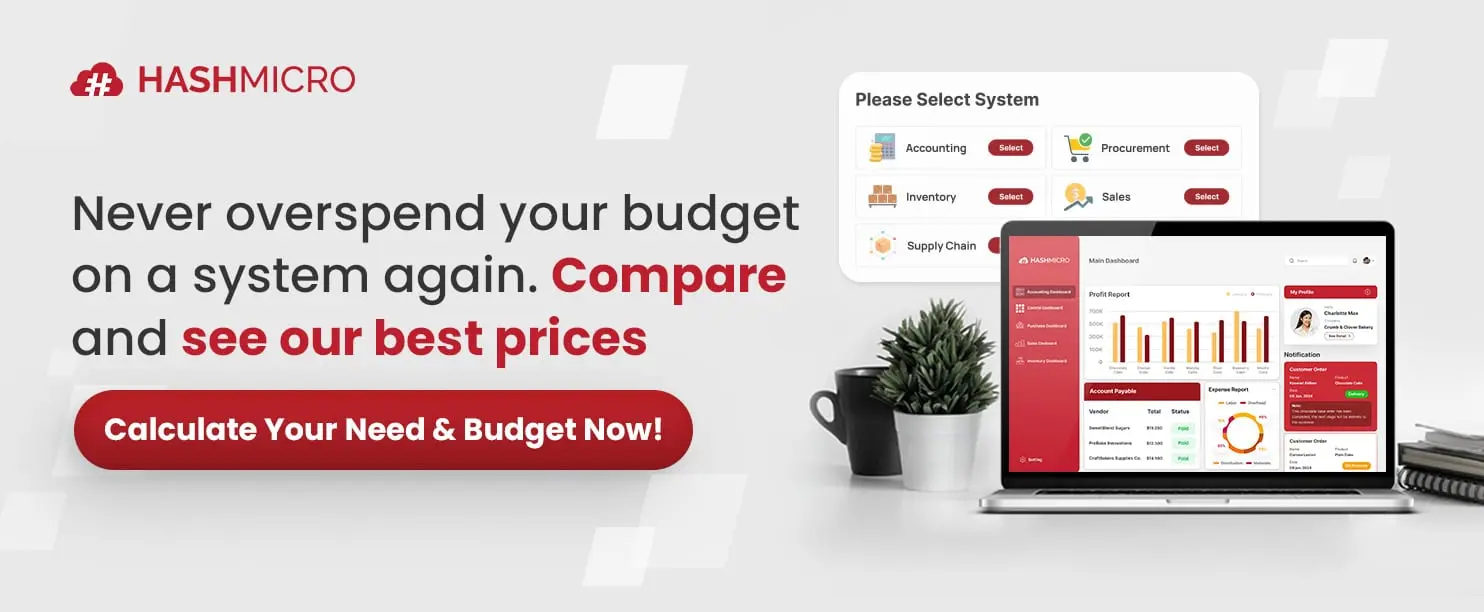In Malaysia’s dynamic business landscape, adopting construction payroll software has become a strategic necessity rather than an optional upgrade. Companies implementing automated payroll systems are proven to be 33% more efficient, as automation simplifies payroll processes, reduces human error, and saves both time and operational costs.
Despite these advantages, many businesses rely on outdated manual payroll systems that are often inefficient, error-prone, and non-compliant with labor regulations. Companies risk inaccurate salary processing and wasted resources without a reliable payroll automation solution.
This article is a practical guide for Malaysian companies to navigate the complex construction payroll software market. It offers insights and data-backed recommendations to help businesses identify the most effective payroll tools tailored to their compliance obligations and operational demands.
Key Takeaways
|
What is Construction Payroll Software?
Construction payroll software is a specialized digital tool that automates wage processing, tax deductions, and regulatory compliance tailored for the construction sector. It streamlines complex payroll calculations, helping ensure workers are paid accurately and on time while significantly reducing manual errors.
For construction companies, such software is crucial for managing industry-specific needs like union dues, certified payroll reporting, and varying job site wages. It automatically processes statutory requirements, generates a detailed payslip, and maintains accurate records.
By digitizing payroll tasks, construction businesses can streamline operations, reduce administrative burdens, and enhance financial accuracy. Choosing the right construction payroll software supports regulatory compliance and operational efficiency across all projects.
Why Do Malaysian Companies Need Construction Payroll Software?
Manually handling payroll in the construction industry can be challenging and time-intensive, often resulting in miscalculations and non-compliance with labor or tax regulations. Errors in wage processing may lead to fines, worker dissatisfaction, and financial disruptions.
Construction payroll software helps prevent these issues by automating complex payroll tasks, ensuring regulatory compliance, and providing detailed reporting for audits and budgeting.
This payroll software for construction also enhances efficiency by seamlessly integrating with job site attendance and time-tracking systems, thereby minimizing administrative workload. It enables construction firms to focus more on core operations and strategic planning.
As construction businesses expand, reliable payroll processing tools are crucial for maintaining accuracy, ensuring legal compliance, and ensuring smooth operations.
In an increasingly competitive and regulated construction environment, implementing construction payroll management software integrated with time-tracking tools is a strategic move that enhances business performance and project efficiency.
12 Best Payroll Software for Construction Businesses in Malaysia
This section will help you explore various HR and construction payroll software choices, making it easier to find the one that aligns with your business requirements.
1. HashMicro
HashMicro is a robust and adaptable ERP software trusted by more than 2,000 leading companies worldwide. It features over 40 software modules and serves various industries with customizable solutions that can seamlessly integrate with external platforms and current systems.
HashMicro’s Construction Payroll Software is trusted by major industry players, showcasing its flexibility and dependability. It delivers customized payroll and HR solutions tailored to meet the specific needs of construction businesses in Malaysia.
Beyond its payroll software, HashMicro also introduces Hashy, an AI-powered tool designed to optimize payroll management through intelligent automation. Hashy AI for HR streamlines employee attendance tracking, payroll calculations, and overtime management, making HR processes more efficient and accurate.
A key feature of Hash AI is the Payroll Monitoring Assistant, which automates the tracking of employee work hours and compensation, ensuring businesses maintain timely payroll distributions and manage payroll-related tasks efficiently.
Key features of HashMicro’s Construction Payroll Software:
- Expense tracking: Simplifies monitoring and reimbursement of field-related expenses, minimizing admin workload and improving cost control.
- Attendance monitoring: Utilizes innovative tools to log construction site attendance, directly feeding data into payroll for accurate payouts.
- Centralized employee records: Consolidates worker information, from personal to financial data, into a unified database for easy access.
- Payroll automation: Calculates salaries based on site hours, overtime, and shifts, ensuring timely and accurate payments.
- Leave tracking: Automates leave requests and approvals, ensuring adherence to labor standards and internal construction site policies.
- Onboarding & offboarding: Streamlines bring workers on-site and manage exits with compliance and clarity.
| Pros | Cons |
|
|
These points highlight the strength and reliability of the construction payroll software while acknowledging areas where users may require additional support or time to become familiar with the system’s full capabilities.
After exploring the key features and benefits of HashMicro’s Construction Payroll Software, you might wonder how it can address your specific business needs. To learn more, you can request a free demo or click the banner below for pricing details.
2. Swingvy
Swingvy offers advanced construction payroll software designed explicitly for Malaysian firms, consolidating key payroll and workforce management tasks into a single, integrated platform. It supports functions such as salary processing, overtime tracking, compliance, and attendance.
Key features:
- All-in-one workforce management
- Manage payroll tasks remotely via a mobile app
- Regulatory compliance with Malaysian construction sector requirements
| Pros | Cons |
|
|
3. Kakitangan
Kakitangan delivers efficient construction payroll software, enabling quick and reliable salary processing with just one click. Built with strong security and compliance in mind, it offers a trustworthy platform for contractors and site managers to manage wages and payment distributions effortlessly.
Key features:
- Supports all local banks and accounting software
- Guaranteed compliance with labor and banking regulations
- Flexible modules
| Pros | Cons |
|
|
4. HR2eazy
HR2eazy is a construction payroll solution integrated with a comprehensive HR software, built to simplify payroll and workforce management for construction companies of all sizes. With over 30 customizable modules, it supports everything from payroll and financials to team performance tracking.
This platform helps reduce operational costs, boost productivity, and save time, making it a practical option for construction firms needing efficient, end-to-end payroll and HR automation.
Key Features:
- Offers a variety of modules tailored for end-to-end payroll
- Flexible configuration
- Streamlines payroll and workforce planning with connected features
| Pros | Cons |
|
|
5. Zoho
Zoho stands out as a construction payroll software tailored for Malaysian businesses. It provides end-to-end solutions for automating wage calculations, managing labor-related compliance, and coordinating seamlessly between project teams.
From salary disbursement to handling site worker benefits, such as gratuity and pension, the system provides a comprehensive platform to simplify HR and payroll management in the construction sector.
Key Features:
- Auto-managed payroll
- Automatically adheres to construction-related labor laws and statutory contributions
- On-site workers can view payslips, tax summaries, and payment history anytime
| Pros | Cons |
|
|
6. Info-Tech
Info-Tech provides an integrated construction payroll software that combines payroll, attendance, leave, and claim management. Designed to automate payroll processing, it minimizes the risk of errors, making it a trusted solution for businesses in the construction industry.
The software is approved for prorated salary transfers by KWSP, LHDN, SOCSO, and most Malaysian banks, including Interbank GIRO.
Key Features:
- Guarantees secure and accessible data from anywhere
- Merges payroll with attendance, leave, and claim tracking for construction projects
- Certified by key Malaysian authorities for smooth statutory contributions
| Pros | Cons |
|
|
7. PayrollPanda
PayrollPanda streamlines payroll management for construction companies, offering an easy-to-use system that simplifies payroll tasks. Approved by relevant authorities, it enables managers to handle payroll quickly and efficiently with minimal effort, thereby reducing the time spent on administrative tasks.
Key Features:
- Fast processing
- Handles payslips, taxes, and contributions automatically
- Tracks labor spending and project resources
| Pros | Cons |
|
|
8. Talenox
Talenox is a cloud-based payroll solution built to simplify payroll, leave, and worker data management for construction businesses. Designed for ease of use, it helps streamline HR and payroll tasks with high accuracy and minimal manual work.
Ideal for small to mid-sized construction companies, the platform provides a straightforward way to manage workforce operations efficiently, whether on-site or remotely.
Key features:
- Flexible pay cycles for various construction roles
- Auto-calculates tax and deductions for Malaysia
- Integrated payroll, profiles, and leave data
| Pros | Cons |
|
|
9. Employment Hero
Employment Hero is a cloud-based construction payroll solution built to streamline worker management, automate salary disbursements, and simplify HR tasks across the entire project lifecycle—from onboarding to offboarding. This all-in-one platform supports payroll accuracy while enhancing workforce efficiency in the construction industry.
Key features:
- HR integration for streamlined leave management
- Convenient payroll management on the go with a mobile app
- Automates MTD/PCB and contribution calculations
| Pros | Cons |
|
|
10. Sage
Sage Payroll simplifies payroll management by using pre-set templates for resource and payroll documentation, boosting efficiency and productivity. It ensures compliance with local construction industry regulations, keeping businesses up to date with the latest laws.
Key features:
- Offers standardized documentation for HR tasks
- Optimizes payroll processes to enhance productivity
- Grants complete oversight of payroll management
| Pros | Cons |
|
|
11. BrioHR
BrioHR Payroll is a comprehensive solution for managing construction payroll processes, offering a secure and scalable platform that covers everything from worker onboarding to payroll, claims, and performance tracking.
Backed by a team of experts, it enables construction businesses to streamline payroll tasks and concentrate on their core operations, while ensuring compliance and efficiency.
Key features:
- Secure and scalable HR management accessible anywhere
- Comprehensive 30+ modules for diverse HR functions
- Employees can access the portal for HR task management easily
| Pros | Cons |
|
|
12. Ramco Paycework
Ramco Paycework offers an integrated platform for managing payroll, HR, and time and attendance, specifically designed to address the complexities of payroll in the construction industry. It incorporates advanced tools, such as chatbots, facial recognition, and voice-based interfaces with Google Assistant and Alexa, to improve operational efficiency and streamline employee management on construction sites.
Key features:
- Handles payroll across multiple construction locations, including Malaysia
- Automatically applies Malaysian tax and contribution rules
- Uses facial recognition and voice control for faster payroll tasks
| Pros | Cons |
|
|
Comprehensive Comparison of Construction Payroll Software
| Provider | Connection Quality | Bank Coverage | Ease of Integration | Data Enrichment |
|---|---|---|---|---|
| Hashmicro | ||||
| Swingvy | ||||
| Kakitangan | ||||
| HR2eazy | ||||
| Zoho | ||||
| Info-Tech | ||||
| PayrollPanda | ||||
| Talenox |
How to Choose the Right Construction Payroll Software for Your Business
Selecting the right construction payroll software is essential for companies in Malaysia, as it plays a vital role in streamlining payroll processes while ensuring compliance with industry regulations. Here are several essential factors that should be considered before making a decision:
- Identify your business requirements: Before selecting a construction payroll system, assess key factors such as project size, workforce structure, and payroll complexity to ensure a suitable fit. For example, companies managing multiple job sites may need software that efficiently handles varied shifts and contractor payments.
- Ensure compliance with Malaysian regulations: Select construction payroll software that automatically adheres to Malaysian labor laws and statutory requirements, including EPF, SOCSO, EIS, and LHDN, while staying current with any relevant legal changes.
- Check software reputation: Research user feedback from construction firms in Malaysia on platforms such as G2, Capterra, or Software Advice to evaluate performance, reliability, and user satisfaction.
- User-friendly interface: A sound payroll system should be easy to use, even for non-technical staff. Consider whether the provider offers adequate training and ongoing support to facilitate a smooth learning process.
- Integration with existing tools: Make sure the payroll software integrates seamlessly with your accounting and project management systems. It ensures better data flow and minimizes administrative workload.
- Data protection: Since payroll involves highly sensitive information, prioritize software with strong encryption and robust security protocols to safeguard employee and financial data.
- Scalability for growing projects: Select a solution that can accommodate expanding teams and more complex payroll structures as your construction business evolves.
- Reliable support and updates: Select a vendor recognized for its responsive customer service and consistent system enhancements to ensure the software operates smoothly.
- Utilize free demos or trials: Testing the software firsthand will help determine whether its features meet the specific needs of your construction operations and workforce.
By thoroughly evaluating these aspects, you can select construction payroll software that aligns with your current requirements, facilitates future scalability, and remains resilient against evolving challenges. Ultimately, choosing the right payroll system is a strategic move that enhances payroll efficiency and effectiveness.
Conclusion
Choosing the right construction payroll software is crucial for any construction business looking to streamline payroll operations, ensure compliance, and improve overall efficiency. As we’ve discussed, the ideal solution should be intuitive, secure, and scalable to accommodate your business’s evolving needs.
HashMicro’s Construction Payroll Software stands out as a top choice, offering robust features, customization options, and a proven track record in the industry. It’s designed to grow alongside your business, providing reliability and peace of mind.
We invite you to explore how this software can elevate your payroll management by signing up for a free demo today. Discover how it can streamline your payroll processes and enhance your business’s operational efficiency. Start optimizing your construction payroll system now!
Frequently Asked Questions
-
Is Excel a payroll software?
It can be a suitable option for some employers with a small workforce, typically consisting of up to 10 employees. However, while Excel provides ease in managing employee and payroll-related data, it is not recommended for larger businesses that have more complex payroll and tax calculation needs.
-
What is a construction accounting system?
Unlike traditional accounting methods, construction accounting emphasizes project-based financial management, often involving long-term contracts and variable expenses. The primary goals of construction accounting are to: Accurately track project costs and revenues. Manage cash flow effectively.
-
How to calculate payroll?
For hourly employees, gross pay is calculated by multiplying the number of hours worked during the pay period by the hourly rate. For example, if your receptionist worked 40 hours a week at a rate of $20 an hour, his gross pay for the week would be 40 x $20, or $800.







































